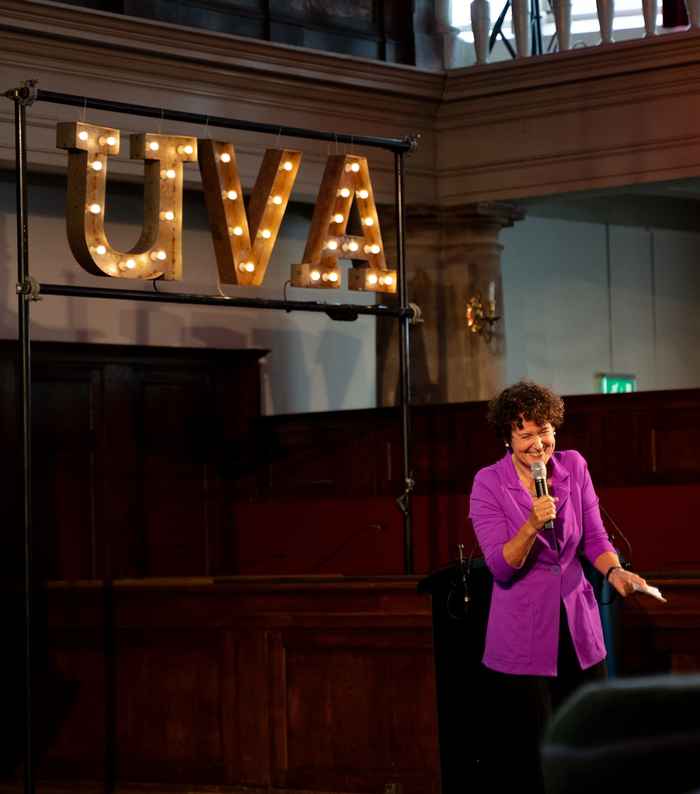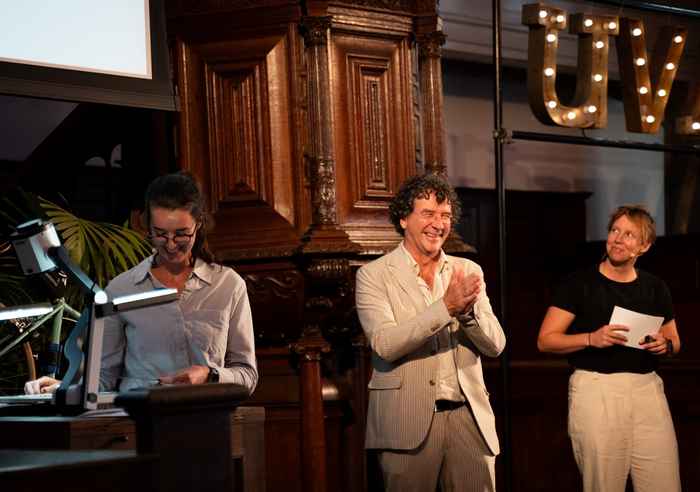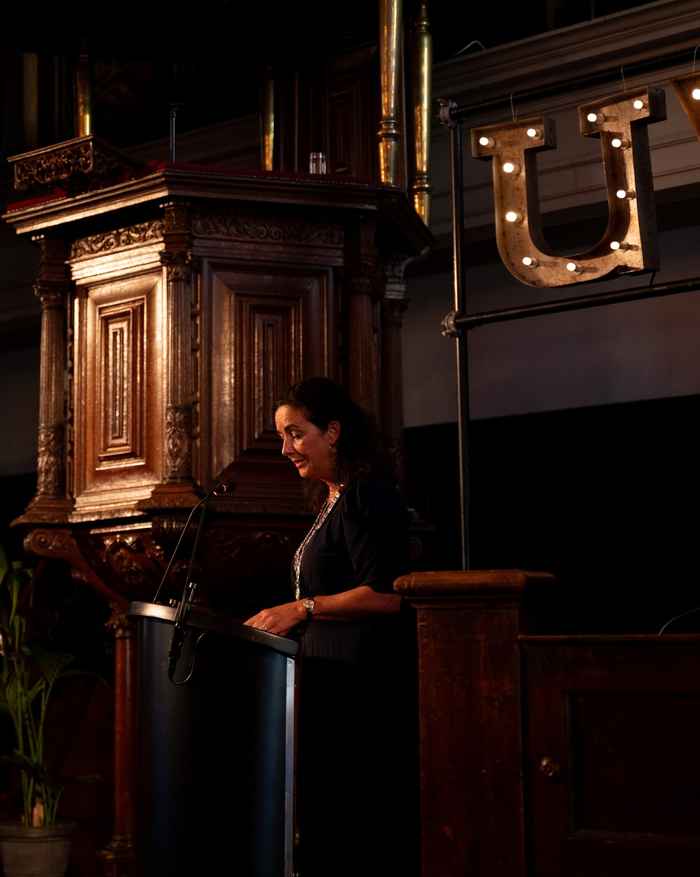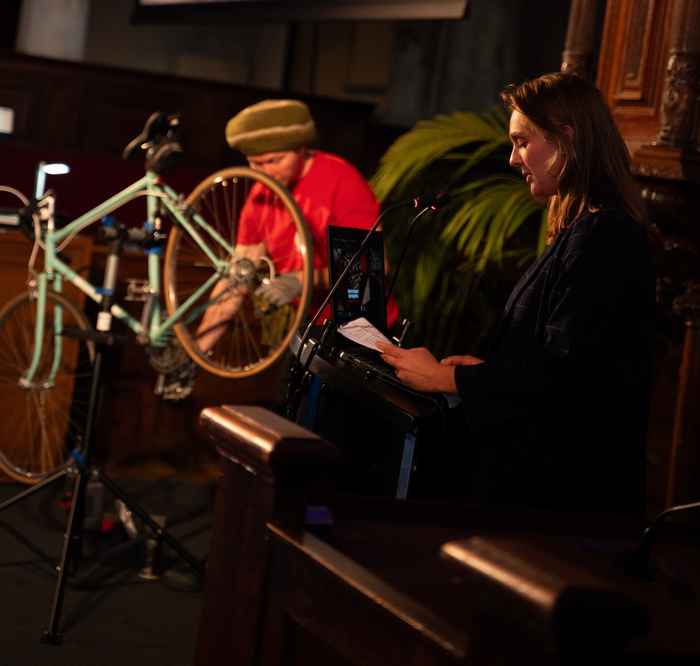Opening of the 2023-2024 Academic Year: A plea for tolerance
6 September 2023

Academic freedom deserves to be protected
‘The year we leave behind us has been one of vigorous debate,’ said Geert ten Dam. Ten Dam is a proponent of tolerance, especially at the UvA. She emphasised the importance of room for mutual debate, while making sure we keep our responsibilities in mind: respect, listening and presenting arguments. We should not merely tolerate voices that contradict our own, but actively seek them out.’
‘Intolerance is directly at odds with our academic mores, particularly academic freedom.’ According to Ten Dam, universities are the ideal place to be confronted with facts and opinions that conflict or even clash with your own. We need to be open to the opinions of others as a matter of principle and allow these opinions to nourish us. Ten Dam: ‘Do not make the debate personal, accept diversity and create a culture in which we can disagree with each other on content. We are all responsible for seeing that this happens.’

The hunt for microplastics
We tend not to realise it, but our clothes are a major source of microplastics. They end up in our washing water and are very hard to break down. We do not know when or how much our clothes shed these microplastics. Environmental chemist Antonia Praetorius, geographer Lies Jacobs and junior researcher Bernou Boven gathered valuable data by having one hundred citizen scientists do their laundry for science. Scientists brought the hunt for microplastics to the Aula as well. They asked the public to donate some fibres from their clothes for the study.
Public intellectuals enrich society
In her speech, Femke Halsema, the mayor of Amsterdam, discussed the relationship between universities and society. According to Halsema, public debate is in a deplorable state. There is a strong need for intellectual leadership, and the mayor believes universities have an essential role to play in that area.

She asked academics not to shy away from the discomfort associated with actively engaging with societal and political debates. ‘Our modern society is complicated. We are dealing with major problems that require nuance, curiosity and scepticism. These problems deserve a public search for the truth, for understanding and for a consensus that accepts the discomfort of contrary and deviating opinions and involves asking each other critical questions,’ according to Halsema. Entering the public debate is something that requires courage and is deserving of our appreciation, both at universities and elsewhere. Halsema: ‘Over the coming years, I hope to hear academics from all over the place discussing the world, and I hope the world will bring discomfort to the heart of the university.’
Read the full speech in Dutch (on the City of Amsterdam website)
Bike Kitchen UvA makes sustainability tangible
The bicycle, used by all layers of society, is a symbol of freedom. Even so, 100,000 bicycles are removed by the Amsterdam municipal authorities every year, and another 15,000 are lifted out of the canals.

Forty percent of Amsterdam residents throw away products that could have been repaired. How can we create a stronger connection between people, the city and products? And how can we make sustainability tangible, so people start taking better care of their things? UvA student Romee Nicolai told us more about this subject. Nicolai is a project leader at Bike Kitchen UvA, a do-it-yourself bicycle repair shop on the Roeterseiland Campus. During Romee’s speech, head mechanic Woytek Redzynia repaired her bike on-stage. Thanks to the Bike Kitchen, there are now fewer abandoned bicycles in Amsterdam. The project also serves as a great testing ground for societal and academic research.